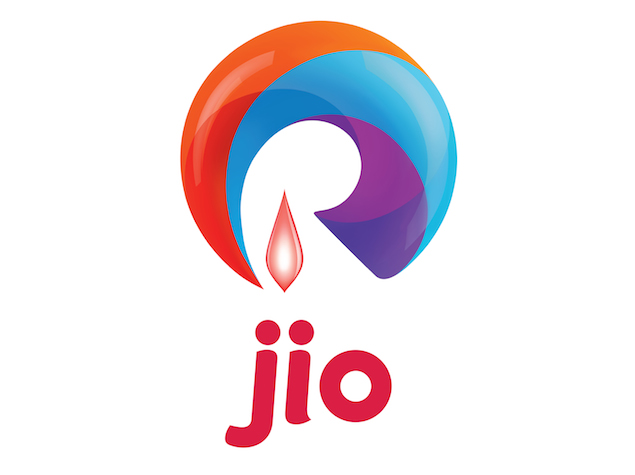- Home
- Telecom
- Telecom News
- COAI hits back at 'illogical' Reliance Jio
COAI hits back at 'illogical' Reliance Jio

It has also said that Mukesh Ambani-led RJIL - which has been opposing telecom regulator TRAI's recommendation for a uniform annual spectrum fee - can continue paying current charges by operating only as an Internet Service Provider.
RJIL procured Unified Licence in August 2013 by paying additional Rs 1,673 crore which allows it to provide all telecom services including mobile telephony.
Spectrum Usage Charge, a bone of contention between the two groups, is levied annually as a percentage of revenue earned by telecom companies. It varies from 3-8 percent.
COAI has demanded that the government implement TRAI's suggestion for a uniform SUC - 3 to 5 percent - from April 1, across the telecom services sector for the success of the next round of spectrum auction scheduled to start from February 3.
COAI has said in response to PTI queries on the issue: "It is illogical that for offering the same technology on different spectrum bands, operators are charged different SUC.
For a customer, a mobile broadband 4G BWA technology (to be offered by RJIL) is expected to be similarly priced in a competitive market.
"How can an operator offering same technology recover an additional burden of 5-7 percent spectrum charges."
Redoubling its efforts to counter demands of GSM players for a uniform annual spectrum fee, RJIL said yesterday that a flat fee will disturb the level-playing field for incumbent operators and new entrants.
In a letter to Telecom Minister Kapil Sibal RJIL has said the COAI demands to alter spectrum usage charge "are not only factually incorrect and misleading but are without any valid justification".
On the other hand, citing TRAI recommendation that spectrum usage charge (SUC) rate "for BWA spectrum should also be fixed at 3 percent where services are provided under CMTS/UASL/UL (AS)/UL", the Cellular Operators Association of India said: "Reliance Jio is fully within its rights to continue under an ISP license and retain its 1 percent SUC".
RJIL said that if TRAI recommendation is accepted by the government, it will burden firms holding broadband wireless access (BWA) spectrum, including RJIL that pays 1 percent SUC at present.
The spectrum allocated to incumbent telecom operators carry mobile signals more efficiently and involves less cost to deploy infrastructure compared to investment needed for providing services using BWA spectrum, according to RJIL.
Hence, the current SUC levied on GSM companies is justified, it has said.
COAI had said earlier that spectrum was allocated on the basis of growth in subscribers number on a particular network and only one kind of mobile services were provided to the subscribers.
"Now, there are many bands used for 2G, 3G, 4G... In such a case, it is important to eliminate possibilities of arbitrage and move to a uniform SUC regime. The same has been amply highlighted by TRAI in its recommendations," it said.For the latest tech news and reviews, follow Gadgets 360 on X, Facebook, WhatsApp, Threads and Google News. For the latest videos on gadgets and tech, subscribe to our YouTube channel. If you want to know everything about top influencers, follow our in-house Who'sThat360 on Instagram and YouTube.
Related Stories
- Galaxy S24 Series
- MWC 2024
- Apple Vision Pro
- Oneplus 12
- iPhone 14
- Apple iPhone 15
- OnePlus Nord CE 3 Lite 5G
- iPhone 13
- Xiaomi 14 Pro
- Oppo Find N3
- Tecno Spark Go (2023)
- Realme V30
- Best Phones Under 25000
- Samsung Galaxy S24 Series
- Cryptocurrency
- iQoo 12
- Samsung Galaxy S24 Ultra
- Giottus
- Samsung Galaxy Z Flip 5
- Apple 'Scary Fast'
- Housefull 5
- GoPro Hero 12 Black Review
- Invincible Season 2
- JioGlass
- HD Ready TV
- Laptop Under 50000
- Smartwatch Under 10000
- Latest Mobile Phones
- Compare Phones
- Huawei Pura 70 Pro
- Huawei Pura 70
- Vivo V30e
- Itel Super Guru 4G
- Huawei Pura 70 Pro+
- Huawei Pura 70 Ultra
- Tecno Camon 30 Premier 5G
- Motorola Edge 50 Fusion
- Asus ZenBook Duo 2024 (UX8406)
- Dell Inspiron 14 Plus
- Realme Pad 2 Wi-Fi
- Redmi Pad Pro
- Cult Shock X
- Fire-Boltt Oracle
- Samsung Samsung Neo QLED 8K Smart TV QN800D
- Samsung Neo QLED 4K Smart TV (QN90D)
- Sony PlayStation 5 Slim Digital Edition
- Sony PlayStation 5 Slim
- Voltas 1.5 Ton 3 Star Split AC (183 Vectra Elegant 4503545)
- Hitachi 1.5 Ton 5 Star Inverter Split AC (RAS.G518PCBISF)















